You love Lucy
Labels: bel canto, guest critic, our own, scotto, youtube

Labels: bel canto, guest critic, our own, scotto, youtube
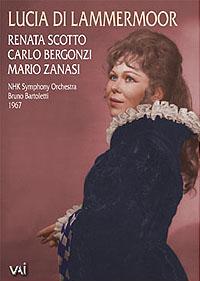 OK, this is IT. Barring the cuts, this is the Lucia of Gaetano Donizetti. Not that misguided travesty at the Met, not Natalie Dessay's vocally juddery overwoughtness. No schtick, no Carol Burnetting around. Just Donizetti and Cammarano's Romantic drama, pure and simple. Real artists, real singers. Performing it straight, as if their lives depended on it. No gimmicks. No BS. You watch this 40 year old performance, and you see and hear a kind of authority and rightness of approach that just doesn't happen often nowadays Here we have music. Here is all the garlic, red wine, passion and organic Italian musical DRAMA. The action contained within the singing. It's a miracle, nothing less.
OK, this is IT. Barring the cuts, this is the Lucia of Gaetano Donizetti. Not that misguided travesty at the Met, not Natalie Dessay's vocally juddery overwoughtness. No schtick, no Carol Burnetting around. Just Donizetti and Cammarano's Romantic drama, pure and simple. Real artists, real singers. Performing it straight, as if their lives depended on it. No gimmicks. No BS. You watch this 40 year old performance, and you see and hear a kind of authority and rightness of approach that just doesn't happen often nowadays Here we have music. Here is all the garlic, red wine, passion and organic Italian musical DRAMA. The action contained within the singing. It's a miracle, nothing less.
Labels: bel canto, guest critic, scotto, telecast
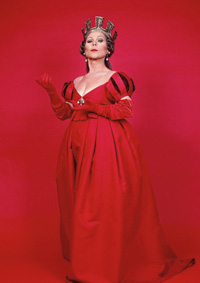 You, the cher public, have spoken. By a firm plurality of 31%, you have selected Renata Scotto's Lady Macbeth as the "encore" to her Adriana Lecouvreur on the current episode of Unnatural Acts of Opera. Of the 238 ballots cast, the Scottish dame garnered 74 votes. Runners-up were Norma (50 votes) and Elisabetta in Don Carlo (47 votes). La Gioconda and Amelia in Ballo brought up the rear with 31 votes each.
You, the cher public, have spoken. By a firm plurality of 31%, you have selected Renata Scotto's Lady Macbeth as the "encore" to her Adriana Lecouvreur on the current episode of Unnatural Acts of Opera. Of the 238 ballots cast, the Scottish dame garnered 74 votes. Runners-up were Norma (50 votes) and Elisabetta in Don Carlo (47 votes). La Gioconda and Amelia in Ballo brought up the rear with 31 votes each.Labels: apocryphal opera anecdote theater of the air, podcast, poll, scotto
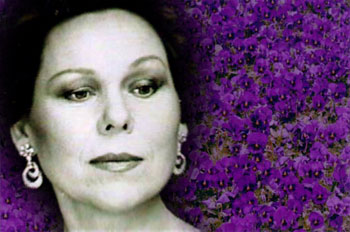 La Cieca's all-time favorite soprano, Renata Scotto, in one of her greatest roles, Adriana Lecouvreur -- if you can think of an operatic experience to rival it, La Cieca hopes you will let her know what you're having! La Scotto is heard in her first Adriana Lecouvreur, from San Francisco in 1977, partnered by Elena Obraztsova , Giacomo Aragall and Giuseppe Taddei under the baton of Gianandrea Gavazzeni. The first act of the Cilea weepy is the centerpiece of the current episode of Unnatural Acts of Opera, but is La Cieca satisfied? Hardly! Bonus features include rare early recordings of Scotto singing Bellini arias (I Capuleti e i Montecchi and I puritani) and your doyenne's admittedly somewhat vague reminiscences of the glory that was San Francisco gay life in the seventies.
La Cieca's all-time favorite soprano, Renata Scotto, in one of her greatest roles, Adriana Lecouvreur -- if you can think of an operatic experience to rival it, La Cieca hopes you will let her know what you're having! La Scotto is heard in her first Adriana Lecouvreur, from San Francisco in 1977, partnered by Elena Obraztsova , Giacomo Aragall and Giuseppe Taddei under the baton of Gianandrea Gavazzeni. The first act of the Cilea weepy is the centerpiece of the current episode of Unnatural Acts of Opera, but is La Cieca satisfied? Hardly! Bonus features include rare early recordings of Scotto singing Bellini arias (I Capuleti e i Montecchi and I puritani) and your doyenne's admittedly somewhat vague reminiscences of the glory that was San Francisco gay life in the seventies.Labels: diva, gay, podcast, san francisco, scotto
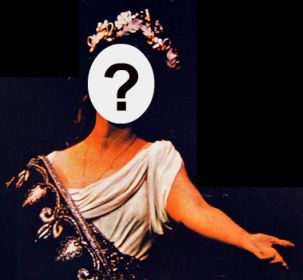 La Cieca was just wondering about something yesterday on opera-l, and doggone if Anne Midgette wasn't wondering about the same thing today in the New York Times. (That woman haunts my dreams, I tell you. It's like she's inside my head. Now, where was I? Oh, yes...) The point that dear Anne and I (among others) have mulling is this:
La Cieca was just wondering about something yesterday on opera-l, and doggone if Anne Midgette wasn't wondering about the same thing today in the New York Times. (That woman haunts my dreams, I tell you. It's like she's inside my head. Now, where was I? Oh, yes...) The point that dear Anne and I (among others) have mulling is this:The opera was chosen by Fräu Lehmann for her benefit, and from a financial point of view her selection was a very wise one . . . . From an artistic point of view the choice does not seem to be so commendable. There is no artistic reason why Lilli Lehmann should present herself to the New York public as a colorature singer. She may have been actuated by a not unnatural desire to display her versatility, but to get up a performance of Bellini's "Norma" for her benefit savors rather of self-esteem than of a strong devotion to honest art . . . . She demonstrated that her voice possessed far more flexibility and that she had a greater command of the pure ornamentation of signing that anyone suspected ... It must be said, however, that Fräu Lehmann took many of the elaborate ornamental passages at a very moderate tempo and sang them with very evident labor, thus depriving them of much of that brilliancy which the smooth, mellow, pliable Italian voices impart to them. Fiorituri without brilliancy have no "raison d' étre," and no Italian diva of standing would have received half the applause that Fräu Lehmann did for singing these passages as she did. The audience was excited by astonishment at the fact that she could do it at all.Well, that was a longer pullquote than La Cieca originally intended to use, but, goodness, that is such excellent critical writing, isn't it? Anyway, back to the argument. Lehmann, Rosa Ponselle, Gina Cigna, Zinka Milanov and of course Maria Callas were all big established stars when they took on Norma at the Met. So were Joan Sutherland and Montserrat Caballé. If Shirley Verrett, Renata Scotto and Jane Eaglen received mixed reviews for their Met performances of the opera, it wasn't because of lack of star power or clout -- they were all extremely important names on the Met roster at the time of their casting.
Labels: bel canto, caballe, critic, fleming, met, midgette, nyt, scotto, voigt
Labels: la cieca ci guarda la cieca ci vede, met, scotto
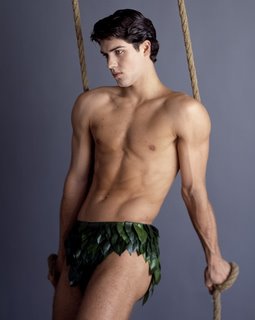
Labels: levine, scotto, tfpdafoaitfoe, voigt
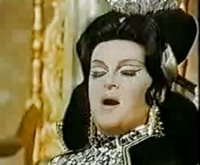 Also new and fresh on YouTube, a clip courtesy of Premiere Opera of the all time champion Turandot team, Birgit Nilsson and Franco Corelli.
Also new and fresh on YouTube, a clip courtesy of Premiere Opera of the all time champion Turandot team, Birgit Nilsson and Franco Corelli. 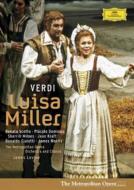 After more than a quarter of a century, Renata Scotto gets the last word over that silly queen who made a career of disrupting her Met performances. The DVD of the "Live from the Met" telecast of Luisa Miller was released today, and is available at Amazon.com at a 30% discount off the list price. This is the performance of January 20, 1979, during which Fernando or whatever her name was shrieked "Brava Maria Callas!" in the instant of silence before Scotto launched into "Lo vidi, e 'l primo palpito." No word so far as to whether the DVD preserves this non-Verdian interpolation, but the important news here is that this Luisa Miller is one of the triumphs of the early James Levine era at the Met, with Placido Domingo, Sherrill Milnes, Bonaldo Giaiotti, James Morris and of course La Scottissima herself in A+ form. If memory serves (remember, it's been 25 years since La Cieca's weary eyes have feasted on this video), the live camerawork is far simpler and more immediate than the overly tweaked fussiness that plagued the Brian Large extravaganzas of the 1980s.
After more than a quarter of a century, Renata Scotto gets the last word over that silly queen who made a career of disrupting her Met performances. The DVD of the "Live from the Met" telecast of Luisa Miller was released today, and is available at Amazon.com at a 30% discount off the list price. This is the performance of January 20, 1979, during which Fernando or whatever her name was shrieked "Brava Maria Callas!" in the instant of silence before Scotto launched into "Lo vidi, e 'l primo palpito." No word so far as to whether the DVD preserves this non-Verdian interpolation, but the important news here is that this Luisa Miller is one of the triumphs of the early James Levine era at the Met, with Placido Domingo, Sherrill Milnes, Bonaldo Giaiotti, James Morris and of course La Scottissima herself in A+ form. If memory serves (remember, it's been 25 years since La Cieca's weary eyes have feasted on this video), the live camerawork is far simpler and more immediate than the overly tweaked fussiness that plagued the Brian Large extravaganzas of the 1980s.
Labels: scotto
Labels: cher public, pav, scotto
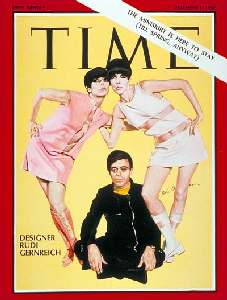 Ah, the 1960s! Corelli and Nilsson in Turandot! Tebaldi in Gioconda! Freni's debut! Milanov's farewell! Beverly's breakthrough Giulio Cesare! The two-night blizzard testing the loyalties of the standees queued for Maria's return to the Met! (And let's not forget the war in Vietnam, LSD, and the miniskirt!) By an odd coincidence, La Cieca's podcast and video offerings this week both date back to the year 1967, and, so far as she knows, neither acid nor minis are involved. On "Unnatural Acts of Opera," we present the soundtrack of a BBC telecast of Eugene Onegin starring Margaret Price, John Shirley-Quirk, Josephine Veasey, Robert Tear and Don Garrard. This week's youtube video clip (also to be found on the "Unnatural" page) is from Lucia di Lammermoor, starring Renata Scotto and Carlo Bergonzi. Unnatural Acts of Opera
Ah, the 1960s! Corelli and Nilsson in Turandot! Tebaldi in Gioconda! Freni's debut! Milanov's farewell! Beverly's breakthrough Giulio Cesare! The two-night blizzard testing the loyalties of the standees queued for Maria's return to the Met! (And let's not forget the war in Vietnam, LSD, and the miniskirt!) By an odd coincidence, La Cieca's podcast and video offerings this week both date back to the year 1967, and, so far as she knows, neither acid nor minis are involved. On "Unnatural Acts of Opera," we present the soundtrack of a BBC telecast of Eugene Onegin starring Margaret Price, John Shirley-Quirk, Josephine Veasey, Robert Tear and Don Garrard. This week's youtube video clip (also to be found on the "Unnatural" page) is from Lucia di Lammermoor, starring Renata Scotto and Carlo Bergonzi. Unnatural Acts of Opera
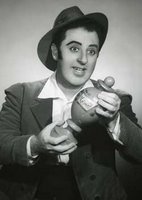 Last week, as you'll recall, our Unnatural Opera was Die Frau Ohne Schatten, one of the most grandiose and over-the-top works ever to grace the stage. La Cieca thought her public's palate could stand a little cleansing, so this time around we will hear a more intimate work, Donizetti's L'elisir d'amore. This performance is from the Maggio Musicale in Florence in 1967, and it stars the definitive Nemorino and Adina of the era, Carlo Bergonzi and Renata Scotto. Now, you wouldn't believe what hoops this unpretentious opera has sent La Cieca jumping though in her never-ending quest to enhance your your listening enjoyment. The first act of L'elisir is very long, as you know, something like 72 minutes, and so La Cieca thought it would be a good idea to break the act into two parts for the podcast. Great, fine, but where to put the admittedly artificial intermission? The logical place is just before Dulcamara's entrance, but then the first part of the podcast is like twelve minutes of music. Well, eventually, after lots of agonizing and second thoughts and sleepless nights, La cieca decided to break after Dulcamara's aria. Well, now that you know that, maybe we should just listen to Unnatural Acts of Opera.
Last week, as you'll recall, our Unnatural Opera was Die Frau Ohne Schatten, one of the most grandiose and over-the-top works ever to grace the stage. La Cieca thought her public's palate could stand a little cleansing, so this time around we will hear a more intimate work, Donizetti's L'elisir d'amore. This performance is from the Maggio Musicale in Florence in 1967, and it stars the definitive Nemorino and Adina of the era, Carlo Bergonzi and Renata Scotto. Now, you wouldn't believe what hoops this unpretentious opera has sent La Cieca jumping though in her never-ending quest to enhance your your listening enjoyment. The first act of L'elisir is very long, as you know, something like 72 minutes, and so La Cieca thought it would be a good idea to break the act into two parts for the podcast. Great, fine, but where to put the admittedly artificial intermission? The logical place is just before Dulcamara's entrance, but then the first part of the podcast is like twelve minutes of music. Well, eventually, after lots of agonizing and second thoughts and sleepless nights, La cieca decided to break after Dulcamara's aria. Well, now that you know that, maybe we should just listen to Unnatural Acts of Opera.
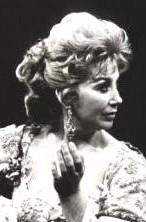 Have the years flown that fast? Well, you tell La Cieca. She just this past weekend realized that it's been 25 years since Beverly Sills retired from singing. To put that in persepctive, the duration of her retirement (1980 - 2005) is now exactly equal to the duration of her New York City Opera career (1955 - 1980). Yes, that means that Bev debuted at NYCO 50 years ago this year! And yet, to La Cieca, 1980 seems like, if not yesterday, then at most the day before. To mark these anniversaries (silver, silver, and gold, respectively), La Cieca is delighted to present an episode of Unnatural Acts of Opera featuring highlights from the "Beverly!" farewell gala. The show begins with a few numbers from Die Fledermaus, Act 2, starring Kitty Carlisle (Prince Orlovsky), Gianna Rolandi (Adele), Alan Titus (Eisenstein) and La Sills reprising her debut role of Rosalinda. Then out come the guests: Donald Gramm, John Alexander, Leontyne Price, Sherrill Milnes, Eileen Farrell, Renata Scotto and Placido Domingo. The program winds up with a pop/opera medley, Sills duetting with Carol Burnett. On second thought, don't kiss yesterday goodbye: do what you can to bring it back!
Have the years flown that fast? Well, you tell La Cieca. She just this past weekend realized that it's been 25 years since Beverly Sills retired from singing. To put that in persepctive, the duration of her retirement (1980 - 2005) is now exactly equal to the duration of her New York City Opera career (1955 - 1980). Yes, that means that Bev debuted at NYCO 50 years ago this year! And yet, to La Cieca, 1980 seems like, if not yesterday, then at most the day before. To mark these anniversaries (silver, silver, and gold, respectively), La Cieca is delighted to present an episode of Unnatural Acts of Opera featuring highlights from the "Beverly!" farewell gala. The show begins with a few numbers from Die Fledermaus, Act 2, starring Kitty Carlisle (Prince Orlovsky), Gianna Rolandi (Adele), Alan Titus (Eisenstein) and La Sills reprising her debut role of Rosalinda. Then out come the guests: Donald Gramm, John Alexander, Leontyne Price, Sherrill Milnes, Eileen Farrell, Renata Scotto and Placido Domingo. The program winds up with a pop/opera medley, Sills duetting with Carol Burnett. On second thought, don't kiss yesterday goodbye: do what you can to bring it back!
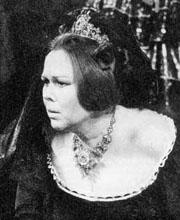 In response to the recent lively(ish) discussion about the suitability of Maria Guleghina to the rigors of the role of Elena in I vespri siciliani, La Cieca has decided that she should demonstrate how this music should be sung. No, actually La Cieca is not going to sing it herself; rather, she will present Renata Scotto's peerless interpretation from La Scala in 1970. This will also mark La Scotto's debut with Unnatual Acts of Opera, and an overdue debut it is when you recall that she is La Cieca's favorite singer, ever. La Cieca once opined that Scotto is the nearest anyone ever came to being the Bette Davis of opera; for that matter, La Davis could certainly be called the Scotto of the Silver Screen. But La Cieca digresses. This gala Vespri also stars Ruggiero Raimondi, Piero Cappuccilli and Gianni Raimondi, under the baton of Gianandrea Gavazzeni. Maestro G. took a number of cuts in the score, which means that we have time for some delightful extras following the acts, with Leyla Gencer, Anita Cerquetti, Boris Christoff and Renato Bruson headlining. It all begins Monday on Unnatural Acts of Opera.
In response to the recent lively(ish) discussion about the suitability of Maria Guleghina to the rigors of the role of Elena in I vespri siciliani, La Cieca has decided that she should demonstrate how this music should be sung. No, actually La Cieca is not going to sing it herself; rather, she will present Renata Scotto's peerless interpretation from La Scala in 1970. This will also mark La Scotto's debut with Unnatual Acts of Opera, and an overdue debut it is when you recall that she is La Cieca's favorite singer, ever. La Cieca once opined that Scotto is the nearest anyone ever came to being the Bette Davis of opera; for that matter, La Davis could certainly be called the Scotto of the Silver Screen. But La Cieca digresses. This gala Vespri also stars Ruggiero Raimondi, Piero Cappuccilli and Gianni Raimondi, under the baton of Gianandrea Gavazzeni. Maestro G. took a number of cuts in the score, which means that we have time for some delightful extras following the acts, with Leyla Gencer, Anita Cerquetti, Boris Christoff and Renato Bruson headlining. It all begins Monday on Unnatural Acts of Opera.
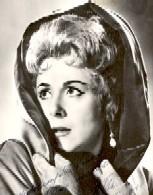 La Cieca notices that those lovely people over at Berkshire Record Outlet are offering what might fairly be called a plethora of opera performances on DVD, for just $8.99 a pop. Particularly drool-inducing selections include La Grande-Duchesse de Gerolstein (Regine Crespin), Lakme (Joan Sutherland), Carmen (Denyce Graves, Roberto Alagna), Un ballo in maschera (Carlo Bergonzi, Antonietta Stella), Norma (Montserrat Caballe, Tatiana Troyanos), Faust (Alfredo Kraus, Renata Scotto, Nicolai Ghiaurov) -- and even a 1988(!) La Gioconda starring Grace Bumbry and Fiorenza Cossotto! Now, you all know how quickly great stuff like this sells out at Berkshire, so what are you waiting for? Get over there now!
La Cieca notices that those lovely people over at Berkshire Record Outlet are offering what might fairly be called a plethora of opera performances on DVD, for just $8.99 a pop. Particularly drool-inducing selections include La Grande-Duchesse de Gerolstein (Regine Crespin), Lakme (Joan Sutherland), Carmen (Denyce Graves, Roberto Alagna), Un ballo in maschera (Carlo Bergonzi, Antonietta Stella), Norma (Montserrat Caballe, Tatiana Troyanos), Faust (Alfredo Kraus, Renata Scotto, Nicolai Ghiaurov) -- and even a 1988(!) La Gioconda starring Grace Bumbry and Fiorenza Cossotto! Now, you all know how quickly great stuff like this sells out at Berkshire, so what are you waiting for? Get over there now!
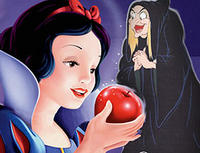 The reviews for Apple's iTunes 4.9 are mixed but the consensus is "thumbs up." La Cieca downloaded and installed the new version last night; very smooth. The interface with podcasts is something less than lavish, the one part of the application that feels "freeware." But La Cieca realizes there are a lot of people out there who use iTunes as their only jukebox software, so it seems likely that this development will increase the podcast public significantly. A good thing. The down side is that Apple has to review the podcasts before putting them on the one-click "subscribe" list, which means that you can't just go to the site and click on "Unnatural Acts of Opera."
The reviews for Apple's iTunes 4.9 are mixed but the consensus is "thumbs up." La Cieca downloaded and installed the new version last night; very smooth. The interface with podcasts is something less than lavish, the one part of the application that feels "freeware." But La Cieca realizes there are a lot of people out there who use iTunes as their only jukebox software, so it seems likely that this development will increase the podcast public significantly. A good thing. The down side is that Apple has to review the podcasts before putting them on the one-click "subscribe" list, which means that you can't just go to the site and click on "Unnatural Acts of Opera."Labels: scotto